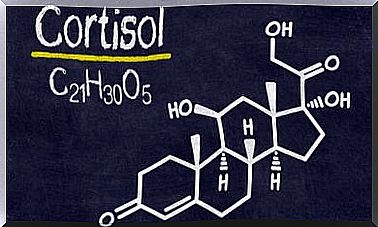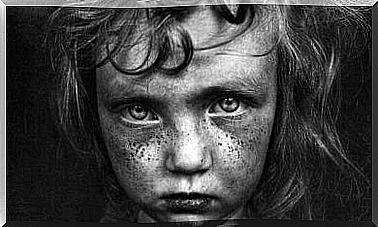What Are The Roles Of Parents In An Eating Disorder?

Often, situations arise where, as a parent, you do not know what to do with your children. One of these situations may be if you suspect that your child may be suffering from an eating disorder and you do not know the roles of parents in an eating disorder.
Here it is conceivable that one should force the child to eat food, punish them if they do not, and get angry at them if none of the aforesaid works. But this is completely misunderstood. It even happens that many parents in this situation go into denial about what is going on.
But it is important to understand that the role of parents in an eating disorder is very important.
” It just does not happen to me child… It simply can not fit that they suffer from bulimia or anorexia.” ‘An attitude like this, however, is incredibly counterproductive if there is good reason to suspect that one is dealing with an eating disorder.
This is because denial of the situation can help prevent early diagnosis and hence complicate further intervention. However, we can not blame the parents for having such an attitude.
It is often fear that leads parents to denial. Fear is something that can hit us all. If parents postpone medical consultation, it is not necessarily because they do not want the best for the child.
The teenage period is difficult for both parents and children
On the other hand, one child’s teenage period can be extremely stressful and challenging. The various changes that one’s child goes through can lead to several different internal and external conflicts.
Screaming, fights, quarrels, lack of understanding and sentences such as “That’s just teenage piss”, put together with the social pressure that arises in many situations, are all something that can help delay diagnosis. of eating disorders.
Parental roles in an eating disorder are very complicated. They, as parents, have to take responsibility for what is going on and hence accept the situation. Then it is possible for them to act and make sure that the child receives the help he needs.
Family dynamics and the roles of parents in an eating disorder
There are several different studies that have analyzed the influence of family dynamics on the development of eating disorders in children.
For example, in the publication of Psychosomatic Families: Anorexia Nervosa in Context, Bernice L. Rosman, Lester Baker, and Salvador Minuchin sought to find frequent and common patterns in families that have had one or more cases of eating disorders. The results shed some light on the family dynamics that proved to dominate the statistics.
Some of these things were negative qualities such as insecure attachment patterns, overprotection, austerity, lack of communication, and the involvement of children in adult quarrels or conflicts.
“ 11% of teenage boys and girls are at risk of developing some form of eating disorder. ”
-Abb Foundation data-

Another similar study called Self-Starvation found that families with daughters suffering from anorexia exhibited the following traits:
- Communication problems: Ie. problems listening to others, rejecting others’ attempts to communicate.
- Parents who did not take on the leadership role or general responsibilities.
- A bad relationship between parents and children.
- The children get involved in the parents’ conflicts.
These studies have their focus on anorexia. However, it is possible that this information may also help in cases of other eating disorders, such as bulimia. Family dynamics and the role of parents in these eating disorders thus play a huge role. But are these two factors the only ones of importance?
Why does an eating disorder occur?
A child’s family is not directly responsible for the development of the eating disorder in the child. Although family dynamics and the role of parents have some significance, teenagers can easily develop eating disorders in families where these problems are not present.
Other risk factors that play a major role among young people are lack of positive self-confidence. In general, it is a low self-esteem, especially in relation to one’s body image may play the biggest role in the development of eating disorders in children and adolescents.
Disorders such as depression or bipolar disorder can cause teens to make use of food to systematically reward or punish themselves. This is something that could possibly lead to the development of a clinical eating disorder or harmful diet. This diet is often based on alternating overeating and fasting.
Parental roles in an eating disorder can often be very challenging. Teenagers may in time find themselves locking themselves inside their room and stopping communicating or listening to reason.
However, scolding, punishing or lacking understanding of their situation can often only aggravate it. It is therefore important to know how to deal with these situations.
The great support that parents can offer their children
Parenting can be the best support for any teenager who is going through a period of eating disorder. However, parents can also be the ones who make it all fall apart if they do not act properly.
Parents can be the biggest help, as they also know best about the children’s patterns and behaviors. They therefore have the best chance of detecting signs of eating disorders in the early stages. However, it is best to seek professional help if there is any doubt as to whether the child is actually suffering from a clinical eating disorder.
It is normal for parents to feel strong frustration if their professionals end up confirming that the child is suffering from an eating disorder. It may be that you, as a parent, feel that the child’s situation is not getting better, or maybe even getting worse.
Parents can even, as a result of frustration, blame the child. In this way, they do not manage to put themselves in the child’s situation, which is probably even much worse than they themselves think.
Seen from the other side, however, it is also not uncommon for parents to be able to find themselves in rejections and seriousness. It is highly likely that the child will not be as receptive to the parents’ attempts to help the child.
This is why it is important to help the child navigate through the situation, along with the parents. Parents need to explain the various things and matters that the child needs to follow in order to get better.

Guidelines and “rules” that can help
It is necessary that you, as parents, stay together, support each other and express your feelings. It is also important to follow the guidelines given by professionals. However, if you do not trust the individual professional, then you should not hold back from making other decisions.
Another important guideline for parents who want to help children with eating disorders is to make sure that the eating disorder does not become the center of the child’s life. Of course, it should be handled, but it should not become one and all for the child or the parents. The child is much more than just their eating disorder.
They have dreams, hopes and feelings… It is important not to undermine this part of their life. This is what can help them get better.
Incidentally, it is necessary to have a good and constructive conversation with the young person if they violate some of the guidelines that are set, in order to avoid it not happening again.
That said, this conversation should be corrective but also motivating. There are two goals with this: To get the young person to dedicate themselves to the task, and make sure that there is plenty of motivation to do just that. Parents cannot afford for the child to give up. That is not an option.
Parental roles in an eating disorder are challenging, but not impossible
As we have seen, parents play a major and important role in the child’s development and treatment of eating disorders. However, parents should seek professional help as the challenge is complex and difficult.
Even with the help of a professional, fighting and treating an eating disorder is a long and challenging process that requires large amounts of patience, intelligence, love and willpower.









